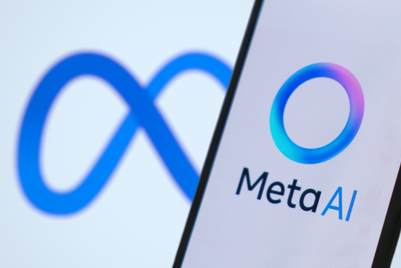
Meta CEO Mark Zuckerberg announced an expensive pivot into the ‘metaverse’ in July 2021, at a time when the company was riding high. Revenue had grown by 56% annually in Q2—the fastest growth it had recorded since 2016.
But fortunes have shifted in the past two quarters, causing the company to rein in its long-term investments.
The parent company of Facebook posted 7% revenue growth to $27.9 billion in the first quarter of 2022—its slowest revenue growth in a decade.
Net income fell 21% to $7.47 billion in the quarter ended March 31, ahead of analyst expectations.
However, Meta did turn around Facebook’s first-ever decline in user growth from the previous quarter that sent shares tumbling 26% after reporting its Q4 results. Facebook daily active users (DAU) grew by 6% year-on-year to 1.96 billion in Q1, while monthly active users also lifted 6% to 2.94 billion.
Mounting headwinds
Advertising revenue growth of 6% to $27 billion in Q1 represents a deceleration from the fourth quarter, which chief financial officer Dave Wehner attributed to both expected and unexpected headwinds.
Apple’s privacy clampdown continues to cause targeting and measurement challenges for Meta’s social media apps, amounting to a “meaningful headwind,” Zuckerberg said. This includes the App Tracking Transparency (ATT) framework, in which apps are required to obtain permission from Apple users to track their activity across apps on iOS. But Wehner also noted “incremental headwinds” from iOS 15, in which Apple rolled out products that allow users to hide their IP and email addresses.
Revenue generated from ecommerce ads has also slowed since a peak during the beginning of the Covid pandemic, Wehner said.
The war in Ukraine “further decelerated growth” in Q1, Wehner added. Facebook and Instagram were blocked in Russia in late March, and the company has stopped accepting ads from Russian advertisers globally.
“We believe the war introduced further volatility into an already uncertain macroeconomic landscape for advertisers,” Wehner noted.
Similar to Alphabet's YouTube, the Ukraine war impacted Meta’s performance in Europe, with ad revenue growth in Q1 flat year-on-year at $6.36 billion.
But it also struggled in North America, with ad revenue up just 1% annually to $12 billion. Wehner said Meta has a “relatively higher exposure to targeting and measurement challenges” in North America, where ad impressions were down year-on-year.
Ad revenue growth was strongest in the ‘Rest of World’ region and Asia-Pacific, which brought in $2.95 billion and $5.66 billion respectively.
Ad impressions delivered across Facebook’s apps increased by 15% year-over-year, but the average price per ad decreased by 8%.
The metaverse will make money…in 2030
Reality Labs, the division responsible for building Meta’s virtual reality (VR) and augmented reality (AR) products, accounted for a large portion of income loss.
Meta spent $2.96 billion on Reality Labs in Q1, but the unit drove just $695 million in revenue. Meta’s goal, according to Zuckerberg, is to generate sufficient operating income growth from its social apps to fund investment in Reality Labs.
But he told investors on Wednesday (April 27) that the company cannot sustain current investment levels while protecting overall profit.
“Based on growth in 2021, we kicked off a number of multi-year projects to accelerate longer-term investments especially in AI infrastructure, business platform and Reality Labs,” Zuckerberg said. “I continue to believe we should see them through, but with our current business growth levels, we are now planning to slow the pace of some of our investments.”
Meta’s expenses grew by 31% in Q1 to $19.38 billion, but the company has lowered its expenses outlook for 2022 from $90 to $95 billion to $87 to $92 billion.
While Zuckerberg said the priority remains building for the long-term, investors may worry about his comments on how long they will have to wait before the expensive ‘metaverse’ bet turns into a revenue or profit contributor.
“This is primarily laying the groundwork for what I expect to be a very exciting 2030,” he said on Wednesday.
Investment in Reels
Beyond the metaverse, Meta officials talked extensively about the company’s investment in short-form video with Reels, Meta’s TikTok competitor which now accounts for 20% of time users spend on Instagram.
But Reels, another big bet for Meta, is also another drag on revenue, since monetisation options are limited compared to its other products.
Zuckerberg compared the transition to Reels to previous “tough periods” when monetisation was slower than user adoption, such as when the company pivoted from desktop to mobile, and from the News Feed to Stories.
“We’ve run this play before and we’re running it again now,” Zuckerberg said. “We expect this expansion in engagement [in Reels] to shift from a short-term headwind to a tailwind at some point.”


.jpg&h=334&w=500&q=100&v=20250320&c=1)


.png&h=334&w=500&q=100&v=20250320&c=1)




.png&h=334&w=500&q=100&v=20250320&c=1)




.jpg&h=268&w=401&q=100&v=20250320&c=1)



